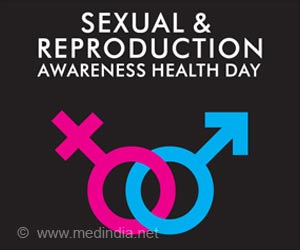- This international day spreads awareness about female genital mutilation
- Female genital mutilation is recognized as a violation of the human rights
- The United Nations has been adapting actions that eliminate female genital mutilation
Read More..
Female Genital Mutilation
FGM includes all procedures that involve altering or injuring the female genitalia for non-medical reasons. The practice is mostly carried out by traditional practitioners in some countries in Africa, the Middle East, Asia, and Latin America.FGM is classified into four major types:
- Type 1: Partial or total removal of the external and visible part of the clitoris, which is a sensitive part of the female genitals, and the fold of skin surrounding it.
- Type 2: Partial or total removal of the clitoris and the inner folds of the vulva, with or without removal of the outer folds of skin of the vulva.
- Type 3: Also known as infibulation, it is the narrowing of the vaginal opening through the creation of a covering seal.
- Type 4: This includes all other harmful procedures such as pricking, piercing, incising, scraping, and cauterizing the genital area.
This practice reflects the deep-rooted inequality between the sexes and constitutes an extreme form of discrimination against women and girls. It also violates their rights to health, physical integrity, inhuman or degrading treatment, and their right to live when the procedure results in death.
2022 Theme
The COVID-19 pandemic disrupted the elimination of all harmful practices including, FGM. In response to this disruption, the United Nations has been adapting interventions that ensure the integration of FGM in the post-pandemic response.To promote the elimination of FGM, coordinated and systematic efforts that engage whole communities and focus on human rights, gender equality, sexual education, and the needs of women and girls who suffer from its consequences.
This year, the UN Joint Program launched the 2022 theme “Accelerating Investment to End Female Genital Mutilation.” It calls on the global community to invest in programs that provide services and response for those who are affected and those who are at risk. It should also include developing and enforcing laws to eradicate FGM.
Empowering girls with access to education, healthcare, and income opportunities can fasten the demise of this harmful practice with no known medical or health benefits.
Key Facts
- It is estimated that at least 200 million girls and women alive today have undergone some form of FGM globally. If this continues, 15 million additional girls between ages 15 and 19 will be subjected to FGM by 2030.
- The practice has no health benefits for girls and women.
- FGM is mostly carried out on young girls between infancy and age 15, with the highest prevalence in Gambia, Mauritania, and Indonesia.
- FGM is a violation of the human rights of girls and women.
- Healthcare providers are involved in the practice. This is known as medicalization.
- The World Health Organization (WHO) is opposed to all types of FGM and healthcare providers performing FGM.
- Treatment of the health complications of FGM is estimated to cost 1.4 billion USD per year and is projected to rise to 2.3 billion USD by 2047 if no action is taken.
References:
- International Day of Zero Tolerance for Female Genital Mutilation - (https://www.unfpa.org/events/international-day-zero-tolerance-female-genital-mutilation)
- The International Day of Zero Tolerance for Female Genital Mutilation (FGM) - (https://www.who.int/news-room/events/detail/2022/02/06/default-calendar/international-day-of-zero-tolerance-for-female-genital-mutilation)
Source-Medindia










